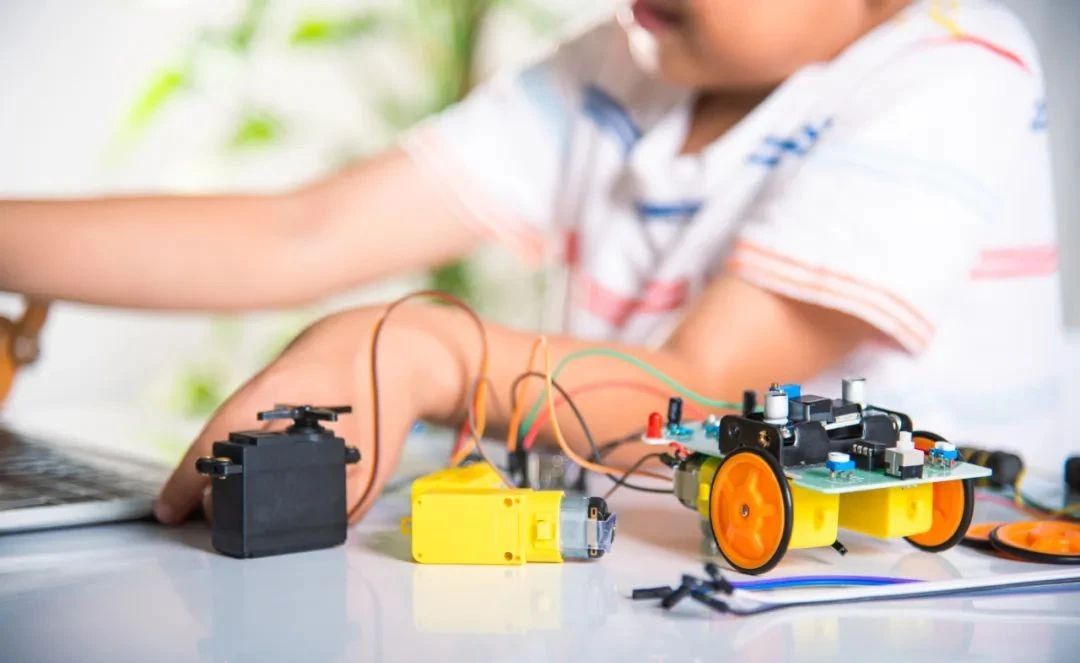 ×
×
As IoT technology is gradually integrated into our daily lives, especially in the field of education. Wireless communication modules, as an important part of the IoT technology, provide strong support and rich application scenarios for children's educational programming robots and electronic smart accessories. It inspires children's creativity and interest in learning with pleasure, to provide educators and educated students with better services and experiences.

Today, we would like to share the application cases of MinewSemi's wireless connectivity modules in educational programming robots, and learn how the wireless communication modules can help the intelligent control products to bring a brand-new learning experience to the children!
Problems faced by educational programming robots and wireless connection technology adaptation solutions
As an important part of programming robots, wireless communication modules have higher flexibility and scalability than traditional wired communication connections. They can realize functions such as remote control, data transmission and collaboration, and can better meet the needs of educational programming robots. This enables programming robots to adapt to a variety of application scenarios, including education, manufacturing, logistics, healthcare and home services. Therefore, programming robots usually use wireless communication modules, and common wireless communication technologies include Wi-Fi, Bluetooth, and ZigBee.
.jpg)
MinewSemi wireless communication module has been successfully applied to the programming robot products of a robotics company. We have conducted research and technical analysis based on the industry characteristics of educational robots, and found that educational programming robots currently generally have the problems of higher difficulty, stability, safety, equipment compatibility, high cost and others. In the field of programming robots, the reason why WiFi module and Bluetooth are prioritized is mainly based on the following reasons:
1. High Difficulty: WiFi modules and Bluetooth modules usually provide some ready-made libraries and APIs, making programming relatively simple. Do not need to write network code from scratch, you can directly use the interface provided by the module to communicate.
2. Stability: WiFi modules and Bluetooth modules usually have good stability, can work properly in a variety of environments. This is very important for the robot, because it needs to move and perform tasks in a variety of environments.
3. Security: WiFi modules and Bluetooth modules usually provide the function of encrypted communication, which can ensure the security of data transmission. This is very important for the robot because it needs to communicate with external systems or devices and needs to protect the security of the data.
4. Device Compatibility: WiFi modules and Bluetooth modules usually have full API interface support in order to make them have a wide range of device compatibility and can be used on a variety of different devices. This means you can use the same module on different robotics platforms, thus avoiding the need to work on different adaptations on different platforms.
5. Cost: WiFi modules and Bluetooth modules are usually cheaper than some other communication modules. This means you can choose to use these modules to build your robot on a limited budget.
WiFi+BLE Combo module application solution to develop "interesting" learning experience
The WiFi+Bluetooth combo module MS13SF1 from MinewSemi is based on the ESP32-D0WD-V3 SoC solution and can be used as an independent system to run applications or as a slave device of the host MCU. This module provides Wi-Fi and Bluetooth functions through SPI/SDIO or I2C/UART interface. The core configuration is Xtensa® 32-bit LX6; the dual-core running speed is up to 240 MHz, with 448 KB+8MB FLASH large program space, 520KB+16KB RAM, integrated 2.4 GH transceiver, LNA and other powerful supporting development resources. It has ultra-high radio frequency performance, stability, versatility and reliability, as well as ultra-low power consumption to meet different power consumption requirements.
At the same time, it has more advantages in programming capabilities. Based on the powerful scalability of ESP32, it supports a variety of programming development tools, including Arduino programming, MicroPython programming and Scratch graphical programming. Scratch codes can be converted into codes suitable for ESP32 through some conversion tools, allowing children or beginners to write codes by dragging modules on the graphical interface of mobile phones or remote control devices, set a variety of programming instructions, and easily operate the robot to execute relevant instructions. For example, the programmed robot can simulate the road environment to automatically avoid roadblocks, accurately follow the black line on the ground, recognize the light in the natural environment and move with it, and can be remotely controlled via infrared or WIFI, providing children with a "fun and educational" teaching atmosphere.
Features:
●2.4G WiFi4(802.11b/g/n)+BT/BLE4.2 combo module
●High performance, equipped with Xtensa® 32-bit LX6 dual core
●Highly integrated, supports AT, ESP-IDF development
●Stable performance, actual test distance under high interference conditions reaches 80M
●Super large flash, multi-scenario example SDK support
In addition to the application of educational programming robots, MinewSemi's MS13SF1 module can also be used in smart home, smart wearable devices, medical electronics, building automation, pet monitoring equipment and other scenarios to help accelerate the landing of the IoT applications. Adhering to the mission of "providing customers with high-quality connectivity modules quickly", MinewSemi continues to provide one-stop professional OEM/ODM services to meet the diversified needs of customers, and help traditional applications to intelligent, digital direction of the one-stop leap.